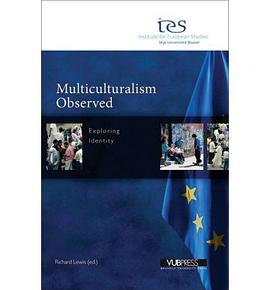

具体描述
The way we record knowledge, and the web of technical, formal, and social practices that surrounds it, inevitably affects the knowledge that we record. The ways we hold knowledge about the past -- in handwritten manuscripts, in printed books, in file folders, in databases -- shape the kind of stories we tell about that past. In this lively and erudite look at the relation of our information infrastructures to our information, Geoffrey Bowker examines how, over the past two hundred years, information technology has converged with the nature and production of scientific knowledge. His story weaves a path between the social and political work of creating an explicit, indexical memory for science -- the making of infrastructures -- and the variety of ways we continually reconfigure, lose, and regain the past.At a time when memory is so cheap and its recording is so protean, Bowker reminds us of the centrality of what and how we choose to forget. In Memory Practices in the Sciences he looks at three "memory epochs" of the nineteenth, twentieth, and twenty-first centuries and their particular reconstructions and reconfigurations of scientific knowledge. The nineteenth century's central science, geology, mapped both the social and the natural world into a single time package (despite apparent discontinuities), as, in a different way, did mid-twentieth-century cybernetics. Both, Bowker argues, packaged time in ways indexed by their information technologies to permit traffic between the social and natural worlds. Today's sciences of biodiversity, meanwhile, "database the world" in a way that excludes certain spaces, entities, and times. We use the tools of the present to look at the past, says Bowker; we project onto nature our modes of organizing our own affairs.
作者简介
目录信息
读后感
评分
评分
评分
评分
用户评价
这本书的叙事节奏感非常强,有一种独特的“张力”。它擅长设置悬念和对比,使得原本可能平淡无奇的史实或理论阐述变得引人入胜。作者对于“过程”的描绘尤其出色,他没有简单地罗列既成事实,而是将历史的偶然性与必然性巧妙地交织在一起,展现了知识构建过程中那些充满戏剧性的瞬间。阅读体验非常流畅,仿佛在跟随一位优秀的纪录片导演的镜头,时而拉近特写,时而切换到全景。这种叙事技巧的运用,极大地增强了读者的代入感,使得抽象的概念仿佛有了鲜活的生命力。它成功地将枯燥的学术史变成了一部引人入胜的探索史诗,让人在不知不觉中,便完成了对核心知识体系的构建和内化。
评分这本书的笔触极其细腻,仿佛一位技艺精湛的工匠,在打磨一块复杂的玉石。它没有直接抛出宏大的结论,而是选择了一条循序渐进、抽丝剥茧的路径,带领读者深入到每一个具体的操作层面。我尤其欣赏作者对于方法论演变的关注,那种对细节的偏执,使得本书在学术规范和操作实践的交汇处闪烁着独特的光芒。每一章节的衔接都处理得自然流畅,像是一条河流蜿蜒曲折,但最终指向明确的海洋。书中的语言风格兼具学术的精确性与文学的感染力,避免了许多专业著作常见的枯燥乏味。它不是那种一眼就能看完的书,它需要你沉下心来,去品味那些隐藏在字里行间的深意。对于那些追求扎实基础和精细理解的读者而言,这本书无疑提供了一个极佳的参照系,让人在浩瀚的知识海洋中找到了稳固的航标。
评分我必须承认,这本书的视野之开阔,着实超出了我的预期。它不仅仅停留在某一特定领域内进行挖掘,而是构建了一个跨越时间与空间的多维分析框架。书中对不同文明、不同时代背景下相关议题的比较分析,令人耳目一新,展现出极强的思辨能力。作者似乎拥有将古老智慧与现代洞见融会贯通的魔力,使得书中的许多论述充满了跨越时代的启示意义。这种打破学科壁垒的尝试,对于拓宽读者的思维格局具有不可估量的作用。它不是在提供现成的答案,而是在激发我们去提出更深刻、更有价值的问题。总的来说,这是一部极具启发性和前瞻性的作品,值得反复研读,每次都会带来新的领悟。
评分读完这本大部头,我最大的感受是知识的“密度”极高。作者似乎将毕生所学浓缩于此,每一个段落都蕴含着丰富的信息量,需要读者投入相当的专注力才能完全吸收。全书的逻辑骨架极其坚固,论证层次分明,即便涉及跨学科的复杂议题,也能保持清晰的脉络不散乱。不同于某些倾向于普及化的读物,本书毫不避讳地使用了大量专业术语和复杂的理论模型,这无疑提高了阅读门槛,但也保证了其学术上的严肃性和前沿性。这种对深度和严谨性的坚持,使得它在同类主题的著作中显得尤为突出。它更像是一份为专业人士准备的深度指南,而非泛泛而谈的导论。对于渴望挑战自我认知边界,愿意投入时间进行深度学习的探索者来说,这本书提供的价值是无可替代的。
评分这部著作的深度和广度令人惊叹。它成功地构建了一个宏大的叙事框架,将看似分散的知识点有机地串联起来,展现了不同学科之间错综复杂的互动关系。作者对于历史脉络的梳理极其细致,从早期的哲学思辨到近代的实证主义兴起,每一步的演变都论证得滴水不漏。特别值得称赞的是,书中对一些关键转折点的分析,既有理论层面的深刻剖析,又不乏生动的案例支撑,让复杂的学术争论变得触手可及。那种对知识体系的整体把握能力,让人不禁感叹作者在相关领域积累的深厚功力。阅读过程中,我时常停下来反复揣摩那些精妙的论证结构,体会到作者在构建其知识大厦时所付出的巨大心血和严谨态度。这本书不仅仅是信息的堆砌,更是一种思维方式的引导,它教导我们如何从更宏观的视角去审视知识的生成与演变过程,对于任何试图理解现代学术格局的读者来说,都是一份宝贵的财富。
评分 评分 评分 评分 评分相关图书
本站所有内容均为互联网搜索引擎提供的公开搜索信息,本站不存储任何数据与内容,任何内容与数据均与本站无关,如有需要请联系相关搜索引擎包括但不限于百度,google,bing,sogou 等
© 2026 book.quotespace.org All Rights Reserved. 小美书屋 版权所有




















